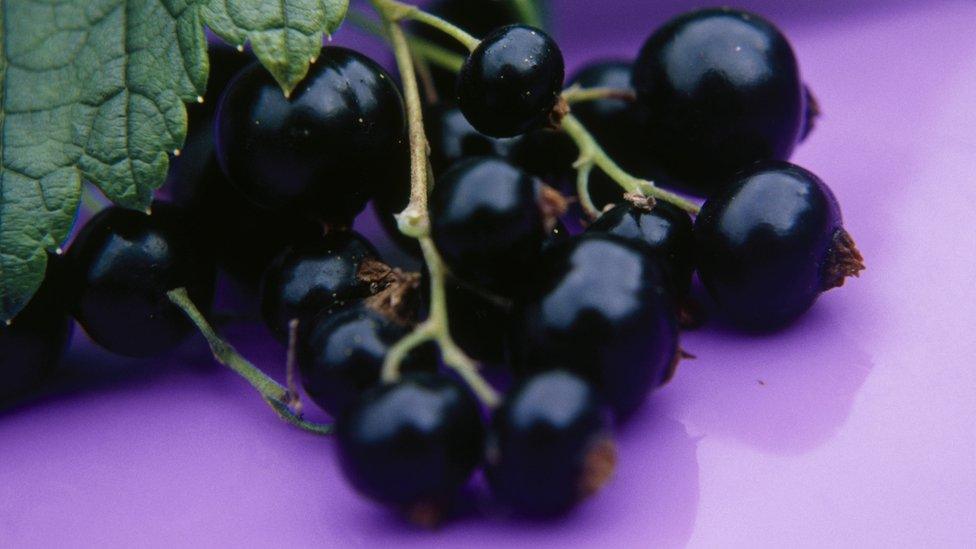Warmer winters 'may hit blackcurrant crops'
- Published

Blackcurrants require a chilling period before they start to grow in spring
Warmer winters may reduce the quantity and quality of blackcurrants grown in the UK, Dundee-based researchers have found.
The James Hutton Institute researchers said milder winters may cause blackcurrant crops to flower later in the year and produce less fruit.
Blackcurrants need a period of chilling before they start to grow in spring.
The findings will be presented at the annual meeting of the British Ecological Society, external in Birmingham.
Blackcurrants are mainly processed in the UK as a juice for major brands including Ribena, which invests in the British blackcurrant breeding programme co-ordinated by the institute.
'New varieties'
Chilling reduces the risk of frost damage to new buds, ensuring they burst rapidly in the spring and flower together, when pollinators are abundant.
The research said understanding how different varieties may respond to climate change was "critical" to farmers.
About 35% of the crop currently grown requires 1,800 hours of chilling below 7°C.
Some varieties need far lower temperatures, while others can tolerate warmer temperatures if the chilling lasts longer.
Dr Katherine Preedy, from Biomathematics and Statistics Scotland, said: "Blackcurrants have particularly high chill requirements and so are already seeing the effects of milder winters.
"In the future, we hope to identify genetic markers associated with the ability to withstand variable winters, so we can rapidly breed new varieties of blackcurrants".